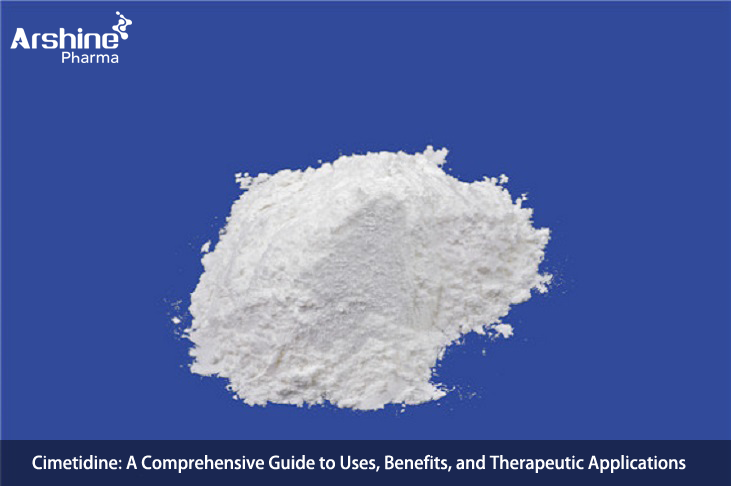
Introduction: Cimetidine, a widely prescribed medication, holds a pivotal role in the management of various gastrointestinal and systemic conditions. This article serves as a comprehensive resource, exploring the uses, benefits, and therapeutic implications of Cimetidine in treating a spectrum of diseases and disorders.
Understanding Cimetidine: Cimetidine belongs to a class of medications known as histamine-2 (H2) receptor antagonists, which work by blocking the action of histamine on stomach cells, thereby reducing gastric acid secretion. Originally introduced as an anti-ulcer medication, Cimetidine has since garnered attention for its broad therapeutic effects beyond gastrointestinal disorders. Its mechanism of action and pharmacological properties make it a versatile agent for addressing a range of medical conditions.
Applications in Disease Treatment: Cimetidine finds extensive use in the treatment of various diseases and conditions, including:
-
Peptic Ulcers: Peptic ulcers, characterized by mucosal erosion in the stomach or duodenum, often result from excessive gastric acid production and impaired mucosal defense mechanisms. Cimetidine serves as a cornerstone in the treatment of peptic ulcers by inhibiting acid secretion and promoting ulcer healing. Its cytoprotective effects help alleviate symptoms such as abdominal pain, heartburn, and indigestion, allowing for resolution of ulceration and prevention of complications such as bleeding or perforation.
-
Gastroesophageal Reflux Disease (GERD): GERD, a chronic condition characterized by reflux of stomach acid into the esophagus, can lead to symptoms such as heartburn, regurgitation, and chest pain. Cimetidine is utilized in the management of GERD to reduce acid reflux and alleviate symptoms associated with esophageal irritation. By inhibiting acid secretion and improving esophageal motility, Cimetidine helps restore normal functioning of the lower esophageal sphincter, reducing the frequency and severity of reflux episodes.
-
Gastric Hypersecretory Disorders: Gastric hypersecretory disorders, including Zollinger-Ellison syndrome and systemic mastocytosis, are characterized by excessive gastric acid production, leading to peptic ulceration, abdominal pain, and gastrointestinal bleeding. Cimetidine is effective in controlling acid hypersecretion and managing symptoms associated with these conditions. Its long duration of action and potent acid-suppressive effects make it a preferred choice for patients with refractory or recurrent gastric hypersecretory disorders.
-
Prevention of Stress Ulcers: Critically ill patients admitted to intensive care units are at increased risk of developing stress ulcers due to factors such as mechanical ventilation, severe trauma, or systemic illness. Cimetidine is commonly prescribed for stress ulcer prophylaxis to reduce the incidence of gastrointestinal bleeding in high-risk patients. By suppressing acid secretion and maintaining mucosal integrity, Cimetidine helps prevent ulcer formation and associated complications in critically ill individuals.
-
Treatment of Gastrointestinal Bleeding: Gastrointestinal bleeding, whether due to peptic ulcers, esophageal varices, or other causes, represents a medical emergency requiring prompt intervention. Cimetidine is often administered as adjunctive therapy in the management of gastrointestinal bleeding to reduce gastric acid output and promote hemostasis. Its mucosal protective effects help prevent rebleeding and facilitate healing of ulcerated or inflamed gastrointestinal tissues, contributing to improved patient outcomes.
-
Dermatological Conditions: In addition to its gastrointestinal indications, Cimetidine has been investigated for its potential therapeutic effects in dermatological conditions such as warts, molluscum contagiosum, and chronic urticaria. Although the mechanisms underlying its efficacy in dermatology remain unclear, Cimetidine has been reported to modulate immune responses, inhibit viral replication, and suppress histamine release, leading to improvement in skin lesions and symptom relief in certain patients.
-
Immunomodulatory Effects: Emerging research suggests that Cimetidine may possess immunomodulatory properties, making it a potential adjunctive therapy in the management of autoimmune diseases and inflammatory conditions. By inhibiting T-cell activation, cytokine production, and inflammatory responses, Cimetidine has been explored as a therapeutic agent in conditions such as rheumatoid arthritis, psoriasis, and alopecia areata. Further studies are needed to elucidate the full scope of Cimetidine's immunomodulatory effects and its clinical utility in autoimmune disorders.
Conclusion: Cimetidine stands as a versatile and indispensable medication with diverse therapeutic applications across multiple medical specialties. Its role in the management of gastrointestinal disorders, prevention of stress ulcers, treatment of gastrointestinal bleeding, and potential benefits in dermatology and immunology highlight its significance in clinical practice. By understanding the uses and benefits of Cimetidine, healthcare professionals can optimize its utilization and improve outcomes for patients with a wide range of medical conditions.
